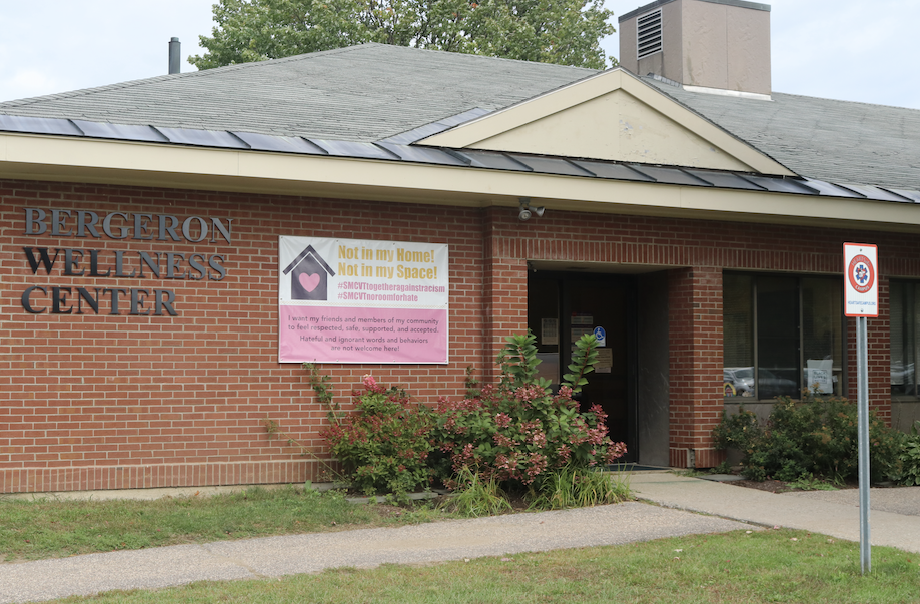
By Charles Wilson
Multimedia Editor
cwilson3@mail.smcvt.edu
COVID-19 has brought every type of medical professional to the breaking point. Even though COVID-19’s physical health effects are generally minor for most healthy vaccinated college-aged adults, the mental health effects are a different story. Isolation, unemployment, and other byproducts of the pandemic in addition to the mental effects of COVID-19 are two byproducts of the pandemic that have resulted in the increased need for mental health support for students on college campuses.
“We found that a lot more students are in distress,” said Bhuttu Mathews, a counselor at St. Michael’s College. Mathews, who worked for public safety at the college for four years and has been a counselor for two years, noticed that the demand for mental health resources has increased on campus.
Bergeron Wellness Center’s counseling staff is made up of three full-time counselors, two interns, two per diem counselors (licensed counselors who come in once or twice a week), and one contracted clinician in the library. “I don’t think we’ve had this many options before,” Mathews said. “Because of the increased demand for our services, we are finding that our waiting time has increased,” Mathews added, but he still thinks St. Michael’s is ahead of many other college counseling services because the College has been on top of adapting to demand.
While there have been no changes in full-time staff and interns due to COVID, Kathy Butts, director of counseling at Saint Michael’s College, said “we were able to hire some part-time, temporary help for when things were particularly busy last semester. We will do the same this semester.”
Mathews confirmed that students may have to wait up to two weeks for an appointment, which is a significant increase from before the pandemic. Previously, students could attend an appointment no more than one week after reaching out.
Even with the busy beginning of the semester, Butts thinks that as time goes on it will only become busier. There’s only a finite number of people available to help students and as demand increases, their availability becomes tighter and tighter. Despite this, Butts remains optimistic. For more urgent situations, every day three and a half hours of drop-in hours are available for students to seek help at Bergeron. These drop-in hours are important to the counseling staff. A counselor who has drop-in hours won’t schedule appointments during that time, instead opting to keep the time available for students seeking help that day. Butts emphasized that students in need of urgent help will be able to receive that help in a short amount of time.
“I don’t think it’s the case that there are more people living with depression or anxiety. I think more people are aware that they are living with depression and anxiety,” Mathews said when comparing the interpretation of mental health diagnosis statistics to the interpretation of autism diagnosis statistics. “Are we seeing a larger number of [autism] diagnoses because our standards are lower, or, is it that autism has always existed and we’ve just never treated it correctly,” he questioned.
The clinical range of depression and anxiety is characterized by persisting mental health symptoms, something many students have been struggling with because of COVID. “I think a lot more people went into the clinical range because of COVID because there are just factors that are out of their control that are affecting their lives,” Mathews said.
Major changes in demands for counselors came in the spring of 2021. In Mathews’ experience, the general trend in past years has seen a large volume of students seeking counseling services from the beginning of the fall semester that decreases significantly once the spring semester begins.
“Last year was an aberration… we were busy right from the beginning of spring as well [as the fall] which shows that people were taking their mental health seriously and coming to see us,” he said. Students have generally begun to take their mental health more seriously and this proactivity has resulted in a larger demand year-round.
There are options for students to seek help while waiting for an appointment with a professional at Bergeron. TalkCampus, an app that’s been promoted by the College in places like Alliot’s napkin holders, is a student-to-student support system. Students around the world can connect at any time. The app monitors conversations for certain keywords and phrases. Aside from extreme cases that suggest a user is at risk of harm or death, “the conversations are pretty confidential between the students involved,” Mathews explained. If a conversation is flagged, “a clinician will then interrupt the conversation and intervene clinically and appropriately,” he said.
For professional help outside of campus, Mathews recommended smcvt.thrivingcampus.com. On the website, there are easily accessible local clinicians all over the country. Clinicians who want to work with the college population can be found by zip code, insurance, identity, and experience.
How to get help sidebar:
Don’t wait to reach out, no matter who you reach out to. Talk to people. Whether it’s a friend, a coach, a professor, or an online resource like TalkCampus.
If you need confidentiality, seek out professional help either through counselors at Bergeron, Dave Cavanagh’s private practice on campus, or outside clinicians. Outside clinicians can be found at smcvt.thrivingcampus.com
Never worry about seeking help from the wrong place. There are many supports for students on campus and no matter where you seek help, you will always be steered in the right direction.
To set up an appointment with the Bergeron counseling staff, contact Heidi Brodtman, Administrative Assistant at Bergeron.
802-654-2234

